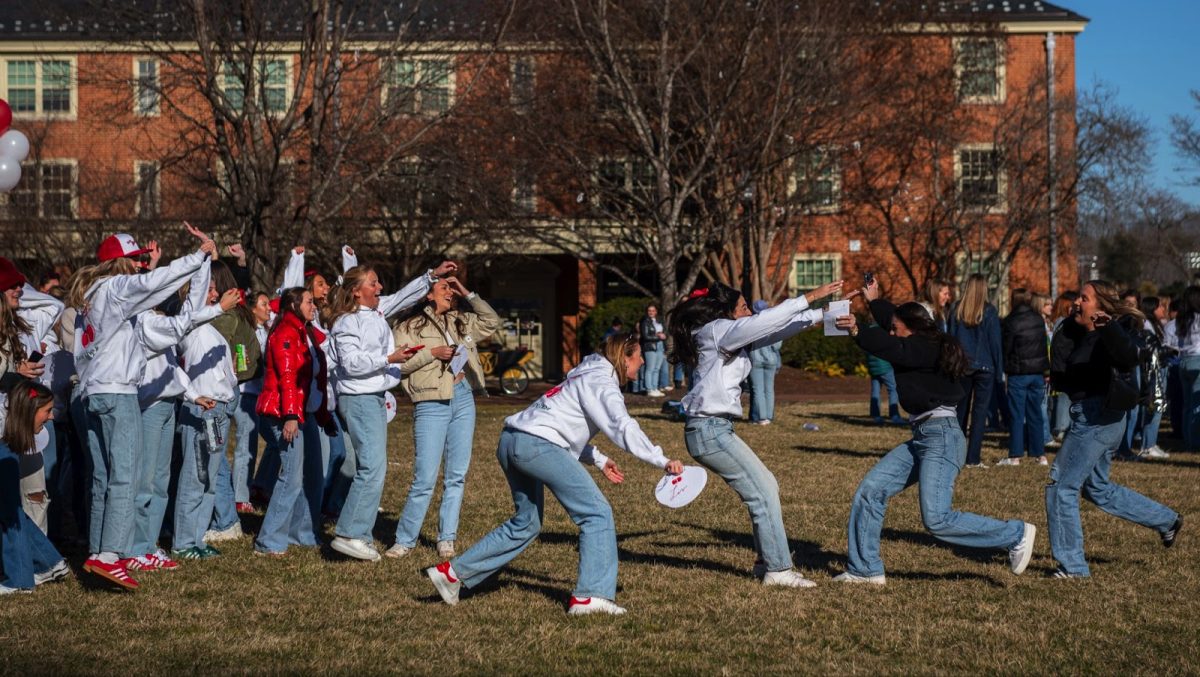When President John F. Kennedy dispatched his then-Secretary of State Dean Acheson to show the CIA surveillance photos of the Cuban missiles to French President Charles de Gaulle, de Gaulle replied that he didn’t need to see the photos of the weapons of mass destruction. “The word of the President of the United States is good enough for me.”
Not any more.
President Donald Trump’s administration has been defined by a frightening combination of general mayhem, suspicious evidence of foreign involvement and aversion to the truth that subverts the dignity of his office. As the word of the President of the United States can no longer be fully trusted as it once was, it’s up to the press to provide the American people — and everyone around the world watching in disbelief — with truth.
However, to do so they must weather the White House’s constant stream of fake news and keep a laser-like focus on the most important stories.
Whenever the media coverage or Congressional pressure gets too tough, or whenever yet another member of his administration is discovered neck-deep in league with Russia, the president’s modus operandi is to devolve into a firestorm of angry tweets and absurd accusations. The same familiar notes are hit: the overture of cynicism, cadenza of conspiracy and symphony of self-congratulations, accompanied by an avoidance of blame. His behavior appears to be off-the-cuff, but in reality, Trump knows what he is doing. With a simple tweet, he can send the press stampeding in any direction he chooses. Unfortunately, we are falling for his politics of distraction.
When Jeff Sessions, the attorney general and chief law enforcement officer of the U.S., made a false statement to Congress while under oath about his conversations with Sergey Kislyak, the Russian ambassador, journalists’ attention to Sessions’ alleged perjury was disproportionately ephemeral. The pandemonium that followed Trump’s pre-dawn tweetstorm accusing the Obama Administration of wiretapping his campaign dominated the news cycle almost immediately and stories about Sessions were stopped in their tracks. From Trump’s perspective, this course of events proceeded perfectly. The media is incapable of ignoring him when he makes such incendiary claims, and up until now, he has faced no consequences for his Twitter incontinence. In addition, his diversionary tactics allowed his administration and allies to fend off questions about Sessions by claiming that the “real story” was alleged wiretapping by President Obama.
Trump is a seasoned practitioner of diversionary politics and has long embraced conspiracy theories, so his early-morning tweets are just another episode in a soap opera of circumstances that cast him in an unfavorable light. For example, after struggling during the first GOP primary debate, he attacked moderator Megyn Kelly by attributing her tough questions to her menstrual cycle.
After the release of the 2005 Access Hollywood video, which contained sexually aggressive audio of Trump, he brought President Bill Clinton’s former assault accusers to the second presidential debate. After settling the lawsuit against Trump University out of court for $25 million, he blasted the cast of “Hamilton.” And repeatedly, whenever critics point out that he lost the popular vote, Trump blames a fictitious five million illegal voters.
Going forward, the press must exercise more discipline. In order for it to be an effective watchdog over this administration, which has already shown evidence of corruption and frightening ties to one of the country’s most imposing adversaries, the press must resist the temptation to give in to the president’s game of cat and mouse.
When the country’s chief law enforcement officer, who is supposed to be the standard-bearer of truth and justice, subverts the law, his oath of honesty and the integrity of his office, journalists must doggedly pursue that story. They must unambiguously declare his fact-free claims to be fiction and turn their attention back to the serious issues.
The president has been rewarded for his behavior in the past, and basic psychology indicates that he will continue this pattern unless his audience changes its response. Rambling press conferences, declarations of McCarthyism and undisciplined attacks against accusers will be Trump’s damage control strategy for the next four years. We can expect that. However, the press maintains full control over its response.
As an inexperienced politician, Trump is playing Connect Four, not chess. If journalists avoid taking the bait and instead subject the White House to sustained pressure, his strategy will crumble. Diverting coverage away from the deeply-rooted problems of Trump’s administration and towards his ridiculous rants legitimizes his accusations far beyond what they deserve.
If the press maintains a relentless, even-keeled focus on the topics that matter, in due time Trump will drive his young presidency off the guardrails, proving his own volatility and dysfunction more effectively than anyone else could.













